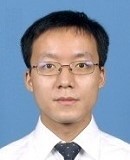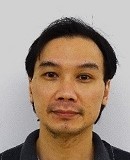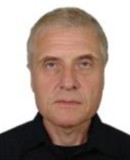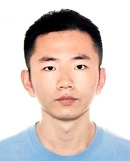We're searching for more keynote speakers! Experts in the area of Energy Material and Energy Technology are welcome to join the conference. In principle, the applicant should be above associate professor, researchers, and engineers.
If you would like to join as EMET keynote speaker, please send your latest CV, recent photo, speech title and abstract to info@emetconf.org.

Yang Han
Professor
School of Mechanical and Electrical Engineering, University of Electronic Science and Technology of China
Title: Modeling and Control of Power Electronic Converters for Microgrid Applications
Abstract: This presentation introduces the fundamental ideas of power electronic converter modeling and control, digital simulation, and experimental studies in the renewable energy systems and AC/DC microgrid. Recent advanced control methods for voltage source inverters (VSIs) and the hierarchical controlled islanded microgrid would be presented, including the mathematical modeling, controller synthesis, parameter selection and multi-time scale stability analysis, as well as the consensus-based control strategies for the microgrid and microgrid clusters. This topic would be an invaluable technical reference for practicing engineers and researchers working in the areas of renewable energy, power electronics, energy internet, and smart grid. This topic has been published in the recent book “Modeling and Control of Power Electronic Converters for Microgrid Applications” by Springer: https://www.springer.com/gp/book/9783030745127.

Wing Chung Tsoi
Associate Professor
Swansea University, United Kingdom
Title: Organic photovoltaic cells for indoor applications
Abstract: Photovoltaic cells are attracting significant interest for harvesting indoor light for low power consumption wireless electronics such as those required for smart homes and offices, and the rapidly-growing Internet of Things. In this presentation, I will show two of our previous research on organic photovoltaics (OPV) for indoor applications, which could enable low-cost, high performance on flexible devices. The first research involved three representative polymer-based OPV systems for comparison under low light level condition using fluorescent lamps. The best performing system generated 13.9 μW/cm2 corresponding to 16.6% power conversion efficiency (PCE) at 300 lx. This high performance suggests that OPV is competitive to the other PV technologies under low light condition despite much lower performance under one sun condition. Different properties of these devices are studied to understand the design rules. In the second research, we explored the potential of solution processable, small molecule OPV cells as indoor power sources based on the design rules learnt. By optimizing the solvent vapour annealing (SVA) time for the PV layer, a record PCE of over 28% under fluorescent lamps of 1000 lux was achieved, generating a maximum power density of 78.2 μW cm−2. This high indoor performance surpasses that of silicon based PV cells, and is similar to that of gallium arsenide PV cells. Besides, the ratios of the voltage at the maximum power point (MPP) to the open circuit voltage are similar from indoor lighting to one sun conditions, which is unique and allows a less power consuming method to track the MPP for a broad range of light intensities. New insight into the effect of SVA on the indoor and one sun performance is provided using advanced optoelectronic characterization techniques. Our results suggest that OPV cells can be promising as indoor power sources for self-sustainable electronics.

Alexander Lukin
Principal Research Scientist & Executive Director
Western-Caucasus Research Center, Russian Federation
Title: Tailoring the 2D-Ordered Linear-Chained Carbon-Based Nano-Additives Vibrational Signature and Functionality for Predictive Performance Enhancement of the High-End Energetic Materials

Yifei Wang
Associate Professor
School of Mechanical Engineering and automation, Harbin Institute of Technology, Shenzhen, China
Title: Fuel cells and batteries on a single piece of paper, a potential micro energy technology with high flexibility
Abstract: Cellulose paper is widely used in our daily life for recording, cleaning and packaging. On the other hand, benefited from its porous structure and hydrophilic property, cellulose paper can also be used to support electrodes and store electrolytes for fuel cells and batteries, which can be made ultrathin, flexible and lightweight. In the past decades, a number of paper-based energy devices have been proposed with satisfactory performance. Regarding this trend, our group has also done related research works including paper-based fuel cells, metal-air batteries and Al ion batteries. For the fuel cell, a direct hydrogen fuel cell was developed first by using aluminum foil for in-situ hydrogen production, but it could only work for several hours. To extend the lifetime, a direct formate fuel cell with a replaceable fuel cartridge was invented, which could discharge for 10 days continuously. In addition to fuel cells, a series of paper-based metal-air batteries were also developed, including Al-air, Zn-air and Mg-air batteries, which are mainly targeted for disposable applications such as lateral-flow test assays and smart packages. Furthermore, a paper-based aluminum ion battery with aqueous electrolyte was developed recently for powering reusable electronics. To suppress the water electrolysis side reaction, a super-concentrated “water-in-salt” AlCl3 solution was used as electrolyte, leading to a stable operation of 400 charge-discharge cycles. The battery safety was also proved to be fine when it was bended, twisted or punctured by a needle. Considering the natural printability of paper, the above-mentioned fuel cells and batteries can be manufactured by screen printing or 3D printing conveniently, leading to a high design freedom and fabrication efficiency.